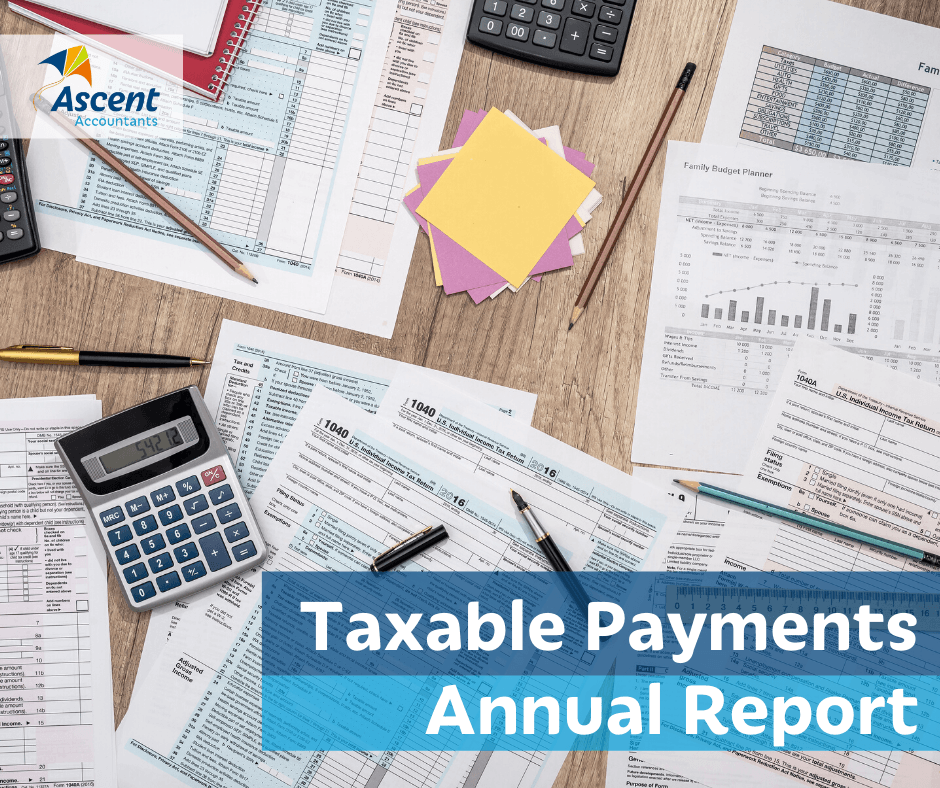Taxable Payments Annual Report

To know if you are required to supply a Taxable Payments Annual Report you must:
- Have an Australian Business Number (ABN)
- Supplied a ‘relevant service’
- Made payments to one or more contractors to provide a relevant service
Examples of the types of relevant services:
- Building and construction services
- Cleaning services
- Courier services
- Road freight services
- IT services
- Security, investigation or surveillance services
- Mixed services
This being said, not all payments need to be reported
Some examples of things that do not need to be declared on your Taxable Payments Annual Report are:
- Payments for materials only
- Payments within consolidated groups
- Pay as you earn withholding payments
- Contractors who don’t proved an ABN
- Payments for private and domestic projects
- Incidental labour
- Invoices that are unpaid as od the 30th of June
Once you have established if you need to submit a Taxable Payments Annual Report, you have a variety of lodgement methods that you can chose from.
Different Taxable Payments Annual Report lodgement methods include:
- Lodging on paper (NAT 74109 form)
- Lodging online
- Lodging via business software
When lodging your Taxable Payments Annual Report, you will be required to supply certain details.
Payee details you need to report:
- ABN
- Business or individual names
- Address
- Total Amounts for the financial year including gross amount paid, total GST an d total tax withheld
Taxable Payments Annual Report are really important and are what help the ATO identify if a contractor has failed to include all of their income on their tax return, failed to lodge tax returns or activity statements, quoted an incorrect ABN on their invoices, or failed to register for GST when they’re required to. It’s a really important process in order to ensure that contractors are meeting their tax obligations.
If you require our help in preparing these TPARs for your business, please content Ascent Accountants on 08 6336 6200
Need help with your accounting?








